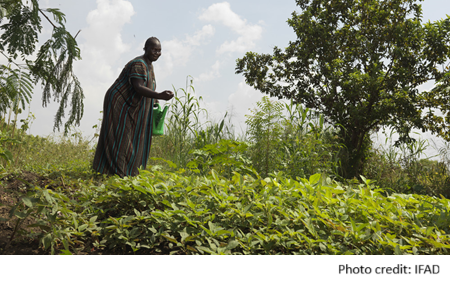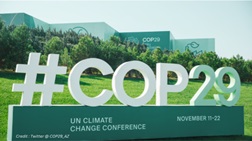Established in 2009, World Pneumonia Day is marked every year on November 12th to increase awareness and advocacy efforts to combat pneumonia, promote interventions to protect against, prevent and treat pneumonia and generate action to combat pneumonia.
Pneumonia is the world’s leading killer of children under the age of five, one of the most solvable problems in global health and yet a child dies from the infection every 20 seconds. It causes more deaths in children under five than AIDS, malaria and measles combined.
Even though a vaccine to prevent pneumonia is available, 75% of children around the world remain unprotected against pneumonia. Combating pneumonia is essential to meeting Sustainable Development Goal 3.2 which aims to reduce preventable child death.
World Pneumonia Day is an opportunity to raise awareness and advocate to combating pneumonia so that all children, regardless of where they are born, can have access to life-saving vaccines and medicines.
To learn more about the issue: view this 1:49 minute video “What if this was your friend’s child”, at https://www.youtube.com/watch?v=YwBrRg4pB-4 and/or World Pneumonia Day website http://www.worldpneumoniaday.org/
To add your voice to help children beat pneumonia please sign A Fair Shot petition by clicking here.
To spread the word and enlist the support of families, friends and communities, a Petition Text/Signatures Sheet as well as a Petition Instruction Sheet can be downloaded at http://grandmothersadvocacy.org/issue/vaccines, scroll down to Resources.
Adding your voice can help win the fight against pneumonia. Will you join us?
Big Pharma has not kept its commitment to invest in Research and Development, according to an article written by Paul Christopher Webster (Globe and Mail’s Report on Business, October 29th). Angela Quinlan of GRAN’s Access to Medicines Working Group has presented the following very interesting and helpful summary.
Three Canadian scientists hope to enlist the support of both government and venture capitalists to relaunch a Research facility in Montreal, one of many abandoned since 2010. According to the scientists, Canada has a history of researching and developing pharmaceutical drugs but has failed to profit from them. For example, an arm of the Public Health Agency of Canada recently developed a vaccine for Ebola virus, which it licensed to a U.S. company for $205,000, who then flipped it to Merck for $50 million (U.S.).
Most of the recently abandoned drug laboratories in Montreal were built in the 1990s after the federal government passed legislation that substantially increased drug patent protection to 20 years. In return, international Pharma companies promised to sink 10% of Canadian annual sales back into R&D in Canada. That quid pro quo was negotiated by then Prime Minister Brian Mulroney in a prelude to the 1988 U.S.-Canada Free Trade Agreement. In 2011, according to the Canadian Generic Pharmaceutical Association (CGPA), the brand-name drug makers spent as little as 1.4% of sales revenue on discovery science. Instead drug companies are spending lavishly to acquire new drugs through acquisitions rather than developing them in their own labs. In 2014, the total value of mergers and acquisitions in the life-sciences sector (of which Pharma is by far the largest component) topped $300 billion (U.S.).
Over the 10 years ending in 2012, the 11 largest global drug companies made $711 billion (U.S.) in profits; their CEOs took home a total of $1.6 billion (U.S.).
The CGPA states that the generic industry fills 67% of Canadian prescriptions, yet accounts for only 23% of the $23 billion Canadians spend on them annually, for a savings to governments of $13 billion.
Marc-André Gagnon, a professor of public policy at Carleton University who specializes in the Pharma industry, says that the industry’s argument is as empty as west Montreal’s abandoned research centres. While the industry formally committed to increasing R&D in return for stronger patent protection from the Mulroney government, Gagnon notes, it has offered no such commitment while pressing for even stronger protections within the CETA and the TPP agreements.
The TPP is one of the largest trade deals negotiated, mainly in secret. The brand-name giants pushed for extended patent protection not just for traditional drugs but also for the new class of biotech-derived drugs known as biologics.
To read the entire article go to:
https://secure.globeadvisor.com/servlet/ArticleNews/story/gam/20151030/R...
Geneva, 12 October 2015 - Starting Thursday, 15 October, the Member States of the World Trade Organization will be considering a request by the world's poorest countries to be exempted from implementing medicine patents for as long as they are classified as least-developed countries (LDCs). If this request is not granted, access to affordable medicines for millions of people in these countries could be negatively impacted.
While members of the European Union voiced their support for the LDC request, other wealthy countries, including Canada, are putting pressure on the LDCs to accept a deal that would put them in a position where they will be in a much riskier situation.
Read more and express your concerns via e-mail at or via twitter by clicking on the Twitter icon at the top of the link below and editing the message to include:
, pls protect Access 2 affordable meds for poorest countries and the link below or any edit of your choice.
Read more at
On October 11, UNAIDS calls upon governments to commit to ending gender inequalities in education, eliminating violence against women and girls, and ensuring the availability of age-appropriate sexual and reproductive health services. These are all actions that contribute to strengthening the response to HIV/AIDS and support the recently endorsed Sustainable Development Goals.
Read UNAIDS’s excellent statement which touches on all the issues that GRAN Working Groups are addressing:
http://www.unaids.org/en/resources/presscentre/pressreleaseandstatementa...
On International Day for Older Persons October 1 (and every day), GRAN salutes the grandmothers of Sub-Saharan Africa who are the heroes on the front lines of the HIV/AIDS pandemic. While grieving the death of their adult children from AIDS they have stepped up to provide for their grandchildren and sustain their communities. One way that Canada could help grandmothers in sub-Saharan Africa would be to increase Canada’s contribution to foreign aid.
In 1969, at the urging of the Canadian Prime Minister the United Nations (UN) adopted a resolution calling for member countries to contribute a minimum of 0.7% of Gross National Income (GNI) to Official Development Assistance (ODA). Now at 0.24%, Canada’s contribution stands at the lowest since 2003; and the 2015 budget provided no increase.
We want to see Canada pay its fair share. Canada paying its fair share will aid people around the globe and those with whom GRAN is especially concerned: the grandmothers of sub-Saharan Africa in their struggle to rebuild the lives of their children, their grandchildren and their communities.
During this election campaign, the Grandmothers Advocacy Network will be asking our candidates if they agree that Canada should live up to the promise made to vulnerable people around the world, including the grandmothers of sub-Saharan Africa. It is time to commit 0.7% to ODA!
At the end of this month, government leaders from around the world will gather in New York to adopt the — the most comprehensive framework for global sustainable development ever designed. The agenda includes a set of 17 goals and 169 targets — the Sustainable Development Goals (SDGs) — that all countries will commit to working toward. Under Goal 5, ‘Achieve gender equality and empower all women and girls,’ is Target 5.3, ‘Eliminate all harmful practices, such as child, early and forced marriage and female genital mutilations.’
Now that we have an ambitious global development agenda, what do we have to do in the next 15 years to make meaningful and positive change in the lives girls?
Read more by Helena Minchew of International Women’s Health Coalition.
Canadians have been horrified and moved to act by the graphic portrayal of the desperation of the faces of the men, women and children fleeing Syria. There is huge support for increasing the number of refugees. As Jenny Neal reminds us, in her editorial published in the Saskatoon Star Phoenixtoday, there is also a critical need for long-term approaches such as Official Development Assistance (ODA).
She spells out the decline in ODA, an issue GRANs are highlighting in the election campaign. Jenny is a member of our Leadership Team---read what she has to say...
http://www.thestarphoenix.com/business/fair+share+tackle+issues+creating+refugees/11355443/story.html
This summer has been a very busy time for global education. Several high level meetings have taken place to set goals for the new sustainable development goal four of achieving inclusive, equitable and quality education for all. The Global Partnership for Education played an important role in developing and advancing the future of education for all at the World Education Forum in Korea, the Oslo Summit and the Financing for Development Conference in Addis Ababa. Canada sent representation to all three conferences recognizing the central role education plays in all development sectors. To find out more about these significant conferences, please read Alice Albright’s blog at
http://www.globalpartnership.org/blog/global-partnership-education-and-p...
Alice Albright is the CEO of the Global Partnership for Education and is tireless in her quest to raise awareness, to make sure that global education is at the top of the development agenda and to get every child into school and learning
Trade ministers from Canada, the United States and 10 other Pacific Rim countries are meeting in Hawaii July 28-31 to begin final negotiations on the Trans-Pacific Partnership (TPP) agreement — a deal that could restrict access to lifesaving medicines for millions of people around the world.
Time is running out to change a trade deal that could jeopardize people’s access to affordable medicines at home and abroad. You can help by signing MSF petition asking Prime Minister Harper to not make medicines a luxury at http://campaigns.msf.ca/tpp or send an email to the government of Canada with your concerns: TPP-PTPconsultations@international.gc.ca and spreading the word.
Why the TPP trade deal is a threat to public health? Check out TPP campaign resources and read more at http://www.theglobeandmail.com/globe-debate/why-the-tpp-trade-deal-is-a-threat-to-public-health/article25548162
GRAN applauds Canada’s pledge to contribute $20 million to a new United Nations Population Fund (UNFPA) project aimed at addressing the causes and consequences of child, early and forced marriage (CEFM).
Child, Early and Forced Marriage (CEFM) is a human rights violation, and has devastating consequences to women and girls in sub-Saharan Africa and around the world. It perpetuates gender inequality and powerlessness that is a barrier to girls developing their full potential and contributing fully to their society. It exposes them to health risks, abuse and violence.
The new UNFPA project aims to help adolescent girls gain better access to health information and services, education and life skills training, while also generating valuable data that will be used for advocacy, training and project tracking.
http://www.international.gc.ca/media/aff/news-communiques/2015/07/20a.aspx?lang=eng
Pages


